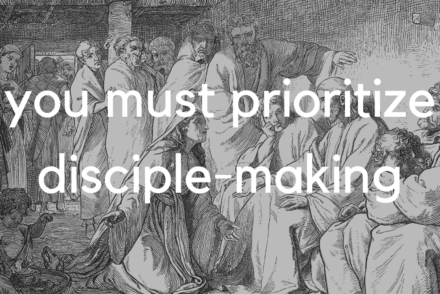Periodically I share some highlights from the books I’ve been reading. Below are some of my favorite quotes from the book Total Truth by Nancy Pearcey. It’s easily one of the best worldview books that I’ve ever read, and I would highly recommend it to all!
—-
It’s crucial for us to realize that nonbelievers are constantly filtering what we say through a mental fact/value grid. For example, when we state a position on an issue like abortion or bioethics or homo-sexuality, we intend to assert an objective moral truth important to the health of society—but they think we’re merely expressing our subjective bias. When we say there’s scientific evidence for design in the universe, we intend to stake out a testable truth claim—but they say, “Uh oh, the Religious Right is making a political power grab.” The fact/value grid instantly dissolves away the objective content of anything we say, and we will not be successful in introducing the content of our belief into the public discussion unless we first find ways to get past this gatekeeper.
—-
Developing a Christian worldview means submitting our entire self to God, in an act of devotion and service to Him.
—-
Every philosophy or ideology has to answer the same fundamental questions: 1. CREATION: How did it all begin? Where did we come from? 2. FALL: What went wrong? What is the source of evil and suffering? 3. REDEMPTION: What can we do about it? How can the world be set right again? By applying this simple grid, we can identify nonbiblical worldviews, and then analyze where they go wrong.
—-
The Christian message does not begin with “accept Christ as your Savior”; it begins with “in the beginning God created the heavens and the earth.”
—-
The Bible treats sin primarily as a matter of turning away from God and serving other gods, and only secondarily in terms of lists of specific immoral behaviors. The first commandment is, after all, the first commandment—the rest follows only after we are straight about whom or what it is that we are worshiping.
—-
Artists are often the barometers of society, and by analyzing the world-views embedded in their works we can learn a great deal about how to address the modern mind more effectively.
—-
The best way to drive out a bad worldview is by offering a good one, and Christians need to move beyond criticizing culture to creating culture.
—-
“Contrary to the expectations of the Enlightenment,” Lewy concludes, “freeing individuals from the shackles of traditional religion does not result in their moral uplift.” To the contrary, the evidence now shows clearly that “no society has yet been successful in teaching morality without religion.”
—-
Most Christian students simply don’t know how to express their faith perspective in language suitable for the public square. Like immigrants who have not yet mastered the grammar of their new country, they are self-conscious. In private, they speak to one another in the mother tongue of their religion, but in class they are uncertain how to express their religious perspective in the accents of the academic world.
—-
If we start with a message of sin, without giving the context of Creation, then we will come across to nonbelievers as merely negative and judgmental…We need to begin our message where the Bible begins—with the dignity and high calling of all human beings because they are created in the image of God.
—-
The postmodern dilemma can be summed up by saying that ethics depends on the reality of something that materialistic science has declared to be unreal.
—-
We should avoid the misleading dichotomy that says evolution is scientific, while design is religious. Darwinism and design theory are not about different subjects—science versus religion. Instead they are competing answers to the same question: How did life arise in the universe? Both theories appeal to scientific data, while at the same time both have broader philosophical and religious implications.
—-
Christianity is the key that fits the lock of the universe.
—-
From 1960 to 1980 there was a striking 43 per-cent reduction in the amount of time men spend in a family environment where young children are present.
—-
Christians must not fall into the trap of assuming that paid employment is the only thing that will give women a sense of dignity. That’s a mistake secular feminists often make. Instead Christians need to challenge the prevailing ideology of success by insisting that individuals are most fulfilled when they enjoy a sense of calling or vocation—whether in paid or unpaid work. We all long for a sense that we are contributing to something larger than ourselves, to a greater good, to God’s purposes in the world.
—-
The only way the church can establish genuine credibility with nonbelievers is by showing them something they cannot explain or duplicate through their own natural, pragmatic methods — something they can explain only by invoking the supernatural.




No Comments